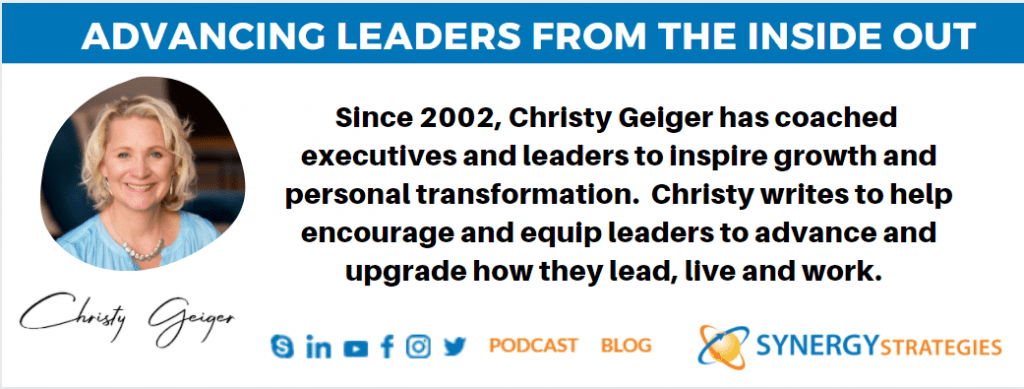Preparing for a professional interview at a company can be a daunting task, but with the right steps, you can increase your chances of securing your desired position. Whether you’re applying for an internship, a new performer role, a director position, or an executive-level job, thorough preparation is key. Read on to learn how to effectively prepare for a professional interview to showcase your skills and expertise.
To prepare for a professional interview and secure a new role, a candidate can take the following steps:
- Research the Company: Gain a thorough understanding of the company’s mission, values, products, and services. Familiarize yourself with the team members, their areas of expertise, and any recent accomplishments of the company.
- Tailor Your Materials: Ensure that your resume, cover letter, and professional portfolio are tailored to the specific requirements of the role and reflect how your skills align with the company’s needs and goals. This is less about changing your resume to match every job and more about being clear on what you are great at so that the right fit job and your superpowers can get connected. Make sure your resume (including your LinkedIn profile) is descriptive and details your experiences, skills, and personal profile.
- Develop a Professional Portfolio: Compile a comprehensive portfolio that showcases your professional achievements, projects, and any innovative methods you have implemented in your previous roles. This is becoming more common to showcase via a personal website that can also house your resume, a blog, etc. It is useful for the expanded information that is beyond the resume and LinkedIn format and summary. This is also more important for executives who need to showcase their leadership brand beyond their experience, or for those who are new to a profession and need to illustrate their competency when they don’t have much experience to show. Having this takes a good amount of time and effort but is a stand-out signature for you and your brand. Having a printed portfolio is also a great way to stand out when you can take this with you to the interview (resume, some work samples, your profiles, etc.)
- Update Your Skills: Keep up with the latest industry trends and developments in your field. Follow industry publications, attend conferences, and participate in professional development opportunities. You might consider getting a certification or freshening up your skills with a course on an up-and-coming technology or tool in your industry. Look at where your industry is going and what makes you more relevant and helps you to stand out from others who have been working in the industry, but whose skills or education might be dusty. As Wayne Gretzky said, “A good hockey player plays where the puck is. A great hockey player plays where the puck is going to be.”
- Prepare Strong Professional Interview Responses: Anticipate common interview questions and prepare thoughtful and detailed responses. Stay positive and solution-focused, demonstrating your leadership and how you envision contributing to the company’s success. It is good to write interview questions and then write your responses. Edit to get them bottom-lined and ensure you are answering the question with a few key points. Often people ramble as they are thinking out loud and drift from the actual question. A good practice is to start your answer by reflecting on the question and then working to find 2-3 key points to answer it. A practice question might be: What experience do you have that makes you a good fit for this position? A practice answer might be: “When I think about the experience that makes me a good fit for this role, numerous things come to mind, but I will start with three. Number one, xyz…” You are reflecting on the question so you mentally zero in on what you are answering, you are giving yourself process time to narrow the answer, you are giving yourself three hooks to provide three different ways you have experience, etc. This is one of the most important things you can do to prepare. Also, after you have interviewed for a role, write down any questions that stumped you so you can prep for those next time. Save your questions and answers to review for future interviews. You don’t have to write them fresh every time, it is more about reviewing your questions and answers so your dialogue can be strong and clear rather than thinking on your feet when you are perhaps more nervous and your mind is going in different directions.
- Showcase Collaboration: Highlight your past collaborations with colleagues, clients, and industry partners to demonstrate your ability to work in a team setting and foster a collaborative work environment. Remind yourself of teams, industry boards, or groups you have worked on, etc. You might want to reference these to showcase your curiosity and learner mind. While you must have experience and expertise, it is also important to be a team player and open to other ideas. A well-rounded person can demonstrate how they can lead and execute but also be a team player and work and learn from others.
- Align with Company Goals: Make sure you have researched the company goals or develop questions to ask about the goals and priorities they have. This will allow you to better align your skills and expertise with the company’s strategic priorities, such as growth, innovation, customer satisfaction, or market expansion. Again, this isn’t about being fake and trying to fit everything, but about genuinely reflecting on your strengths and unique abilities and how they intersect with the company’s desires and focus. When there is alignment in an area, it creates greater fit and synergy.
- Network: Leverage your professional network to gain insights about the company, its culture, and the expectations for employees. Connect with current employees or department heads, if possible, to learn more about the company’s goals and objectives. Talking to them and asking for their tips and suggestions should help to prepare for the interview. Also, in today’s market, a “referral” or “endorsement” never hurts!
- Be Prepared to Engage: Be curious and seek to learn. Yes, you are there to answer their questions, but you want to answer those and then be curious. Often people get nervous and want to showcase their competency and might come across as overbearing. It is a dance with the interviewer that has a question, answer, and staying in step with each other through gentle presence, noticing, and moving together. This is where you might be able to ask questions that you have prepared. Not because you are firing off questions at them, but because they are more artfully weaved into the interview as you answer their questions and then through the lens of curiosity ask them a related question. For example, they ask about how you plan to build xyz division and break into the international market, you answer that and then ask what things they have tried so far. You want to answer first because you are being interviewed, but it is also ok to ask as their answer might allow you to expand more depending on what they have done or not. It is a dance.
- Stay Professional: Present yourself professionally, dress appropriately, and convey enthusiasm for the opportunity to join the company’s team. It might be obvious but put your phone away so you are not tempted to look at it, you might even consider not wearing a device if you have a watch that you get alerts. Make eye contact and bring a notebook. Taking notes (when appropriate) is a sign of engagement. (It is like a server at a restaurant that writes your order versus memorizes it; most prefer their order to be written and correct). Make sure to be 10 minutes early for the interview. Have a copy of your resume (ideally the portfolio package you made) to bring with you and leave behind. Send a thank you email or note after the interview.
For those looking for leadership roles make sure to include:
- Emphasize Leadership Experience: Highlight your experience managing teams, leading projects, or providing mentorship to junior colleagues. Provide specific examples of your leadership achievements and how they have contributed to the success of your previous teams or projects. These are good things that go in the portfolio (paper and website)
- Develop a Leadership Philosophy: Articulate your leadership style, values, and approach to team management. Be ready to discuss how you motivate and inspire team members, handle conflicts, and promote a positive work culture. Consider how you are different than other leaders to help you narrow down and articulate your philosophy and style.
- Showcase Strategic Thinking: Demonstrate your ability to think strategically by highlighting instances where you developed and executed long-term plans, drove company initiatives, or successfully navigated complex business challenges. Work to find measurable ways to indicate success, traction, and work accomplishments. Plans and initiatives you did in the past can be another element that is included in the portfolio. Note: make sure to remember confidential information.
- Communicate Vision and Innovation: While interviews are about the company, the higher you go in leadership the more important it is to be able to share your vision for the future and how you intend to drive innovation and bring fresh ideas to the table. Be prepared to discuss your creative problem-solving abilities and how you have driven change and improvement in your current or past roles.
- Highlight Business Acumen & Executive Presence: Display your understanding of the company’s industry, market position, and competition. Discuss how you have contributed to business growth, increased revenue, or improved operational efficiency in your previous positions. Show your financial and business management skills if relevant to the new leadership role.
By working through these steps and preparing thoroughly for your professional interview, you can set yourself up for success and increase your chances of landing your dream job. You don’t need to do all of them, but each has a purpose and contributes to a powerful presentation and thorough preparation. It can be overwhelming to work through it all. Use the power of your network to check your thoughts and material. Look for a job search group to have an accountability buddy who is doing the same thing. If you desire additional support in leveling up your career or guidance in your job search, consider coaching to support your leadership development.
Know every step you take makes a difference. Make sure to surround yourself with positive people and things, the process can be arduous, but trust the right job is out there for you. The clearer you are the quicker you will find each other!
Good luck!






